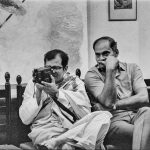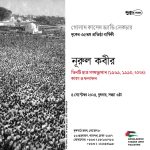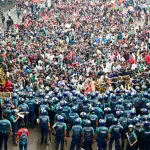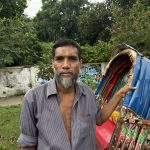

-
-
Shahidul Alam: Interview on BBC Asia News Network
Interview on 22nd February 2013, where he talks about the…
-
-
-
AMNESTY USA ON SYRIAN GOVERNMENT'S WAR CRIMES: The whole truth?
by rahnuma ahmed I’d thought of writing about Monsanto this…
-
BBC Caught In Syria Massacre Propaganda Hoax
News agency uses picture of dead Iraqi children to depict…
-
-
BBC World The Strand Podcast
Subscribe to ShahidulNews MEDIA : Listen now (18 minutes) AVAILABILITY:…
-
Bangladesh army's advancing business interests
Subscribe to ShahidulNews By Kamal Ahmed BBC News, Dhaka The…
-
Latest Posts
Categories
- 1971
- Afghanistan
- Arts
- Bangladesh
- Capitalism
- Caretaker government
- Censorship
- China
- Chittagong Hill Tracts
- Chobi Mela
- Chobi Mela VII
- Coal
- Colonialism
- Consortium government
- Corruption
- COVID 19
- Crossfire
- culture
- Current News Photos
- Democracy
- development
- Disappearances
- disasters
- Drik and its initiatives
- Drik DNA
- Drik's Network Partners
- Drugs
- economy
- Education
- Elections
- Energy
- environment
- exploitation
- features
- Film
- Garments
- Gas
- Gender
- Genocide
- Global Issues
- Governance
- guimet
- Health
- History
- Human rights
- Humour
- Immigration
- Imperialism
- India
- Interesting sites
- Interviews
- Interviews and Features
- Islam
- Kalpana Chakma
- Killings
- Law
- lectures
- literature
- Major Features on Bangladesh
- Majority World
- media
- Media issues
- Migration
- Military
- mining
- Mir Jafar
- Monarchy
- Music
- My Photo Essays
- Nepal
- New Age
- New Media
- News Archives
- News Photo Archives
- Nuclear
- Occupation
- Oil
- Pakistan
- Partition
- Pathshala
- People
- Personal
- Photography
- Photojournalism
- Photojournalism issues
- photojournalist
- politics
- Poverty
- RAB
- Rahnuma Ahmed
- Religion
- Resistance
- Reviews
- Science
- security
- Shahidul Alam
- Sheikh Hasina
- short stories
- Sites of Drik and Pathshala photographers
- South Asia
- Southern Exposure
- Sports
- Sri Lanka
- surveillance
- Taliban
- Technology
- Terrorism
- Transport
- UK
- Uncategorized
- USA
- Violence
- War
- war on terror
- Water
- World
Tags
1971 Art Arts Bangladesh book censorship Chobi Mela Chobi Mela VII culture Death democracy Dhaka Drik education Elections exhibition Festival garments Gaza Genocide Governance history Human rights India Israel Journalism Law literature Majority World media Military Pakistan Palestine Pathshala Photography Photojournalism politics Rahnuma Ahmed resistance Shahidul Alam USA Violence Visual Arts War War Crimes



